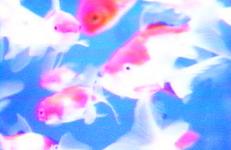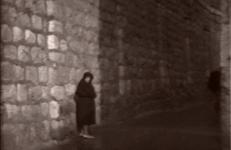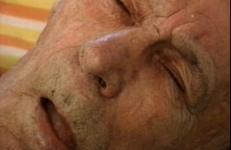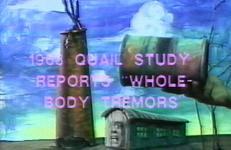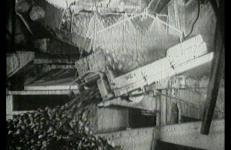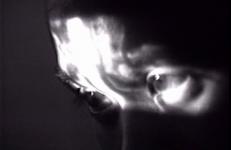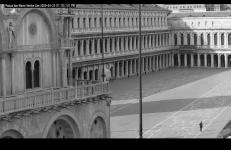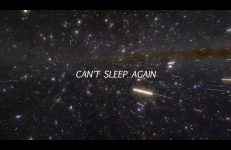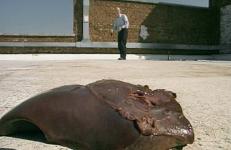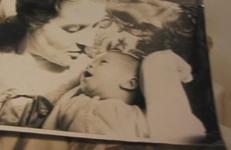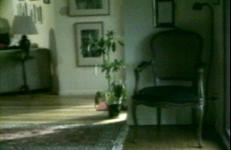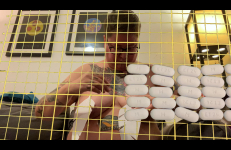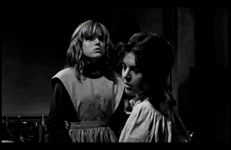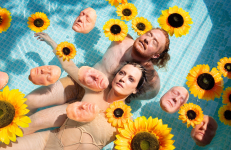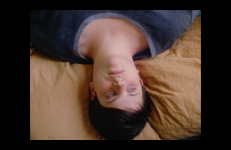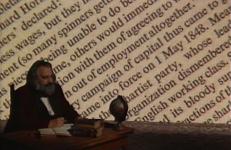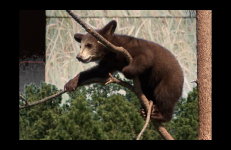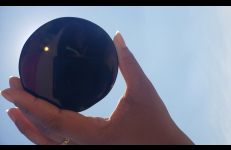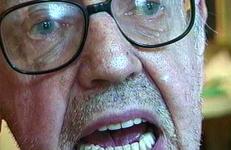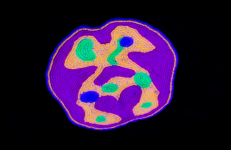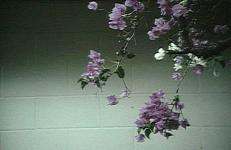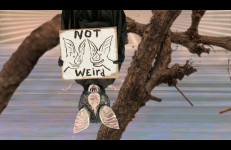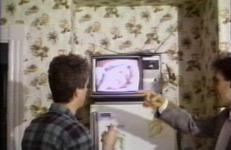This experimental video breaks many the silences surrounding lesbians and AIDS. Interweaving the voices of two friends—an HIV+ Latina lesbian and an HIV- Jewish lesbian—the video juxtaposes two very different yet overlapping experiences. The piece points to the often unspoken tensions occurring within this epidemic—survival and power, mourning and loss.
Health
This experimental video breaks many the silences surrounding lesbians and AIDS. Interweaving the voices of two friends—an HIV+ Latina lesbian and an HIV- Jewish lesbian—the video juxtaposes two very different yet overlapping experiences. The piece points to the often unspoken tensions occurring within this epidemic—survival and power, mourning and loss.
During Videofreex member David Cort's travels to Jerusalem, a scene was shot in a hospital where a female patient is having electrodes attached to her body. The cameraman gets on the cot and has the electrodes attached to him as they talk about making a brain feedback machine for use at home. The next scene records the cameraman walking the streets of Jerusalem. People passing by interact with the camera.
An ailing, elderly man listens to a private performance in his room. The singing is a halting mix cross-cultural-Inuktitut and Country & Western. Transgressive and mesmerizing, Karaoke distorts the landscapes of sound and body.
In Inukitut.
This title is also available on Donigan Cumming: Controlled Disturbance and Donigan Cumming Videoworks: Volume 1.
Against images of an inventor-chemist juggling brightly colored molecules, psychedelic arms passing out pesticides, and nightmarish landscapes that include trapped live subjects, Oursler presents Hopewell, Virginia—a turn-of-the-century boomtown gone bust, and host to a Kepone pesticide manufacturing plant since 1966. Although Kepone’s extreme toxicity was well established by 1964, production grew and employees continued to be exposed to the carcinogen—eventually poisoning the surrounding area and the James River for years to come.
Originally part of a multi-media installation at the Everhart Museum in Scranton, Pennsylvania, King Anthracite documents the lives, work, and early deaths of Lithuanian immigrants (including Kybartas’ ancestors) who mined the Pennsylvania coalfields at the turn of century. Oral histories of miners detail their impressions of the United States and the hardships they encountered, including black lung disease and other occupational hazards that turned wives into widows and children into orphans.
By focusing on the blindfold, kore explores the eye as purveyor of desire, sexual fear, and the fantasy of blindness. An alternative sexuality is founded in touch-based (feminine?) pleasure as opposed to a vision-based (masculine?) pleasure. An examination of institutional blindspots towards women, and people of color, concerning AIDS expands on the issue of vision, visibility and the disease.
This title is also available on Tran, T. Kim-Trang: The Blindness Series.
Last Man is made of the raw footage of security cameras that stream online. During the spring 2020 lockdown imposed due to the Covid-19 pandemic, Dana Levy, who lives in New York, monitored the images transmitted live from security cameras in city centers and at airports, beaches, universities, restaurants, and zoos around the world. In them, these key venues, which in normal times are bustling with life, appear nearly devoid of human presence.
Life Without Dreams is set in the outer space of consciousness, where the surfaces of far out planetary bodies form the terrain for an exploration of 24/7 capitalism, insomnia, and the disappearance of darkness.
In this surreal experimental narrative, there’s something wrong with a patch of sky. As it travels over Southern England, objects cast up into it come down hugely enlarged, bloated. Meanwhile in London, the patch is in fact a troubling scab on a crippled old man’s head. As the scab develops, all he can do is wait, going through the changes, led on gently by the idiot-savant son with his childlike multiple identities.
Locke’s Way is the photographic path to knowledge, full of twists and turns, treacherously steep. What has happened down here? A family’s photographs tell us everything and nothing about the subterranean past. "One of the central questions of philosophy has always been: what can be known? Locke’s Way provides a vivid illustration of this perennial philosophical dilemma. In this short video, Donigan Cumming is preoccupied with the story of his older brother, who seems to have been brain-damaged and spent much of his life in institutions.
This distanced narrative, which approximates a soap opera or a TV interview of bereaved relatives of a victim, confronts two means by which food is used as a weapon: the internalized oppression of self-starvation as a consequence of social learning (anorexia nervosa), and starvation because of poverty and economic domination. In a scenario that merges documentary elements and theatrical acting, an impossibly young couple is addressed by an unseen questioner.
In The Lost Art of the Future, Cuthand talks about artists he has known who have passed while living with HIV/AIDS, and the art he wishes he had been able to see them make if their lifetimes had been longer.
Anne Bancroft and Patty Duke proceed to beat each other while text from psychiatrists and ex-patients discuss the violence in some forms of psychiatric care. Four actions repeat as the struggle for autonomy rages.
Magic Thinking is a multi-platform film installation steeped in the current moment when climate catastrophe, the COVID pandemic, and the rise of fundamentalism combine to contribute to an apocalyptic aura. With this aura, magical thinking can become a survival strategy, creating surprising bedfellows. In particular, the confluence of far-right extremism and the “wellness” world.
The Making and Unmaking of the Earth turns to geology as both a metaphor for and a psychic container of women's emotional states and embodied experiences of physical pain. Combining archival footage of earth processes with interviews describing mysterious physical experiences and emotional attachments, this film explores how everything we bury deep inside eventually speaks through the geology of the body.
Kipnis describes this tape as "an appropriation of the aesthetics of both late capitalism and early Soviet cinema—MTV meets Eisenstein—reconstructing Karl Marx for the video age.” She presents a postmodern lecture delivered by a chorus of drag queens on the unexpected corelations between Marx’s theories and the carbuncles that plagued the body of the rotund thinker for over thirty years. Marx’s erupting, diseased body is juxtaposed with the “body politic", and posited as a symbol of contemporary society proceeding the failed revolutions of the late 1960s.
Medicine Bundle is about a bundle that was used in my family to heal my Great Great Grandfather from a smallpox epidemic and a life threatening wound from a gatling gun used against him during the Battle Of Cutknife Hill in 1885. The bundle was again used in 1918 when my Grandfather contracted the Spanish Flu as a baby. It was buried in an unmarked grave to protect it from grave robbers, but the spirit within the bundle has continued to protect our family from more modern psychological effects of colonization like depression.
A Meditation on Nature in the Absence of an Eclipse is a poetic glimpse into the ways centuries of extraction, racism, pollution, and nature's commodification have altered our relationship to sacred land, water, and resources. A constellation of intersecting histories and source material include testimony from a Water Protector at Standing Rock protesting the Dakota Access Pipeline, contaminated water in Flint Michigan, and original footage of Hierve el Agua near Oaxaca, Mexico, a rock formation revered for its healing properties.
In My Dinner With Weegee Donigan Cumming weaves together two life stories. The central figure, a man in his seventies named Marty, remembers his experiences in New York as a young Catholic labour organizer and peace activist, his friendships with David Dellinger, the Berrigan brothers, Bayard Rustin, Weegee, and James Agee. This mixture of first-hand knowledge and gossip brightens Marty’s dark passage—he is old, sick, depressed, and alcoholic.
Theo Cuthand and his mother Ruth Cuthand have a candid conversation about Theo's last hospitalization for Bipolar Disorder in 2007. While Theo only knew his manic episode from the inside, Ruth had to deal with caregiving decisions and trying to find help. While they reminisce they also have to reckon with the feelings of animosity that arose between them during these events.
Co-directed with Ruth Cuthand.
From childhood memories to recurring nightmares, Nine Fish attacks and illuminates the indecision and confusion surrounding euthanasia and care of the elderly in the United States. In this deeply spiritual and personal video, director Kip Fulbeck chronicles his Cantonese grandmother's physical decline and its continuing impact on his family. The shifting complexities of personal identity, family communication, and cultural assimilation are explored through nine semi-fictional stories.
It’s not the bats’ fault.
Holed up in Lockdown in London during the Covid pandemic, I made a bat-head mask, I made a skeleton.
As recent state cut-backs force many mental patients out into the real world, Tony Oursler and Joe Gibbons team up to address psychiatric deinstitutionalization from a comic angle. After years of being cared for, Tony, Joe and their dog Woody leave the cuckoo’s nest and reluctantly face the prospect of finding jobs and cooking their own meals. Their darkly comic adventures include a comatose Tony tuning in to daytime TV, and Joe fantasizing about death while strolling in the park.
As recent state cut-backs force many mental patients out into the real world, Tony Oursler and Joe Gibbons team up to address psychiatric deinstitutionalization from a comic angle. After years of being cared for, Tony, Joe and their dog Woody leave the cuckoo’s nest and reluctantly face the prospect of finding jobs and cooking their own meals. Their darkly comic adventures include a comatose Tony tuning in to daytime TV, and Joe fantasizing about death while strolling in the park.




